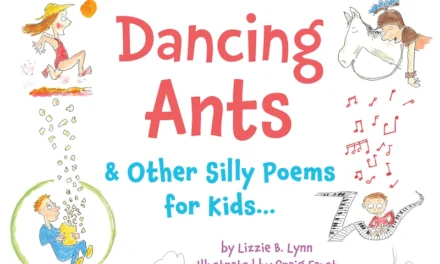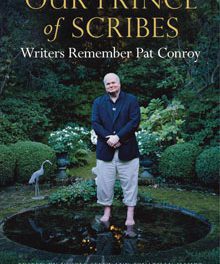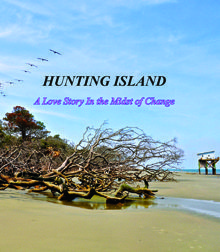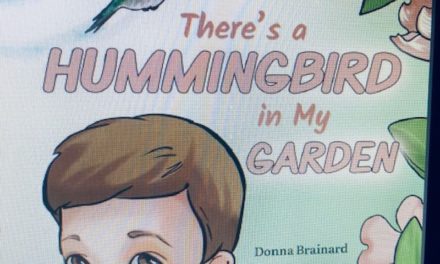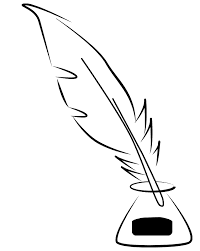 Lowcountry Weekly is pleased to announce the winners of the 3rd Annual Sea Island Spirit Writers Short Story Contest. Participation was even better this year than last! The writers were asked to respond to the prompt ‘Seven Times’ in 750 words or less. There were so many great stories, we’re glad the Sea Island Spirit Writers served as judges, not us. Those judges were: Donna Armer, Katherine Tandy Brown, Emily Davis-Fletcher, Virginia Hall-Apicella, and Jacqueline Markham.
Lowcountry Weekly is pleased to announce the winners of the 3rd Annual Sea Island Spirit Writers Short Story Contest. Participation was even better this year than last! The writers were asked to respond to the prompt ‘Seven Times’ in 750 words or less. There were so many great stories, we’re glad the Sea Island Spirit Writers served as judges, not us. Those judges were: Donna Armer, Katherine Tandy Brown, Emily Davis-Fletcher, Virginia Hall-Apicella, and Jacqueline Markham.
Thanks to everybody who entered a short short this year, and congratulations to the winners!
And now, without further ado . . . the top three winning stories.
1st Place $100
The End of the World, by Anatol Zuckerman
2nd Place $50
Sab’n Time by Claudia Cornett
3rd Place $25
The Floods, by Sissy Kinghorn
Honorable Mentions $20
The Complaint, by James Moss
The Closer, by John “Mac” MacIlroy
The End of the World
By Anatol Zuckerman
The year was 1961 and the world was about to end in a nuclear conflict. We had just graduated from Moscow School of Architecture and were drinking our heads off, saying farewell to everything. We knew how to design sculpted habitats for humanity but didn’t know how to die in a blast of a nuclear wind. Russian humorists recommended staying away from the windows, wrapping in wet white bedsheets and slowly crawling toward the nearest cemetery to prevent panic. Eight time zones away American comedians advised people to crawl under your desks, to cover your heads with your hands and kiss your ass goodbye. Different methods, the same result.
So we shoved our diplomas into deep drawers, went to the Crimean town of Kocktebel and celebrated life for the last time. The nights went on with sex and booze, the days were full of drunken haze, hot sun and cool waves. My girlfriend Marina and I rented a room from an old widow who kept her house clean and puttered in a small garden with plum trees. Our married friends rented another room in the same house but the thin wall between us could not provide a complete aural privacy. And who cares about privacy if the world’s coming to the end?
American rockets aimed at us from Turkey across the Black Sea and Russian rockets aimed at Miami from Cuba. While Nikita Khrushchev played chicken with John Kennedy the world held its breath and howled in horror. The KGB expected submarines to sneak upon us from an American base in Turkey so the beaches were closed after dark and military patrols shooed people off the beaches. Once a bunch of us went away from the town and skin-dipped in the sea under a full moon. We splashed in its reflection and broke it into a thousand silver crescents dancing in black water.
In the middle of the night we went home and made love. Unlike our peers in Miami we didn’t have the pill so our love was not unbound. The tricks which we invented to avoid unwanted pregnancy may look funny now but in 1961 it was a serious matter.
“The hell with it!” Marina said. “If we die tomorrow then it doesn’t matter if I’m pregnant. If we live tomorrow then we’d have peace and I’d give birth to another architect.”
“Or two,” I said.
“Or three,” Marina added. “We’ll be poor but happy.”
“That’s what we are now,” I said. “Don’t need children to be poor and happy.”
“Still,” she retorted, “the more architects build sculpted habitats the better. We’ll build beautiful cities so beautiful bombs will destroy them and provide work for other architects.”
“Don’t forget about excellence in architecture,” I said. “When the nuclear shock wave hits, our prefabricated apartment buildings will collapse and create unconquerable barricades for the unwinnable guerilla war. We shall fight them in the beaches, we shall fight them in the streets, we shall never surrender!”
“Excellent plan,” Marina said. “Prefabrication is the mother of rapid erection and deconstruction.”
“Speaking of erection,” I noted, “why does this blanket have a peak in the middle?”
“Let me find an answer to that question,” Marina said and threw the blanket to the floor. “Wow, this looks like a model of the Pisa Tower. Only seven degrees off vertical. I hope it will not collapse.”
“This is not the Pisa Tower, darling,” I said. “This is an intercontinental ballistic missile, IBM.”
“I’d be damned!” she said. “Is it going to shoot?”
“It’s up you, dear. Your finger’s on the red button.”
That night we made love seven times.
“We’re going to have seven little architects,” Marina said. “The Magnificent Seven.”
“They will build seven wonders of the world and marry seven brides in Oklahoma,” I added. At sunrise we lay in our narrow bed smiling at the fading stars and laughing at the face of the red nuclear death rising above a golden horizon. To our surprise it didn’t turn into a giant mushroom cloud.
In the end the world didn’t end. Khrushchev made a deal with Kennedy and removed his missiles from Cuba in exchange for Cuba’s independence. American democrats killed Kennedy for making a deal with Khrushchev. Russian communists retired Khrushchev but let him die in his own bed. Marina married her boss and bore him seven magnificent children. I emigrated to the United States and built seven houses.
Seb’n Time
By Claudia Cornett
Seven Times is a town fixture, like the clock tower, gazebo or boardwalk. He’s panhandled up and down Water Street as far back as history, offering equal opportunity to townies and tourists alike. Most give him wide berth, or swat him away like an annoying fly. A few dig out change or a bill and place it in his shriveled claw of a hand.
Growing up, like most little kids, I gave Seven Times as much thought as manholes. My earliest memory of him is kids getting in his face, hollering dumb things like, “What’s seven times one?” Acting small to look big.
Things changed the July I turned seven. Oblivious to heat-traumatized air, I skulked around town playing spy, thinking palmetto trunks made me invisible. One day Seven Times caught my eye. Both repelled by and attracted to the embodiment of poor and ugly, I peeked around trees, taking mental snapshots of his face, as grotesque as any Halloween mask. Pinched, blotchy skin stretched over a hairless skull, and one cheek sagged like melted plastic, pulling the depleted nose off center. To my surprise, the more I looked the less he became an object of pity, and more a question mark.
On a blistering day thick with the acrid smell of pluff mud, I spotted him sitting near the bay, catching a rare breeze. When a pack of boys approached, I backed into some pittosporum.
“Hey goofus, what’s seven times eleven?” A fireplug of a boy demanded.
A lipless, lopsided smile divided Seven Times’ face.
Arms akimbo, Fireplug leaned in. “I asked you a question. You gonna just sit there givin’ me a goon face and smellin’ like the bottom of a birdcage?”
A sniggering pimply boy chimed in, “He asked you a question, toothless!” A third shouted, “We want answers!”
But Seven Times simply smiled, and at that moment I noticed his eyes – an unearthly backlit blue.Â
Seven Times’ unflinching smile must’ve lodged in Fireplug’s craw. Face twisted in disgust, Fireplug spread his legs, “Do I gotta knock you off that wall to get my answer?” He exchanged glances with his pals, arched his brows, and they lunged.
“Seventy-seven!” my mouth bellowed, without consulting my brain. And I realized my flip-flopped feet had done likewise, planting me smack between Seven Times and those slack-jawed hooligans, now frozen in place like a tableau entitled “stupefied.”
A screen door slammed, and a woman materialized, wagging the business end of a rice spoon. “If you boys don’t get going, you’ll get seven times eleven with this,” she declared.
Fireplug thawed. Teeth clenched, he surveyed the bay, rotating until his eyes pelted us with hate. “Come on,” he growled to his buddies, “We got better to do than inhale oxygen from a white-trash fat girl and butt-in-ski old bat.” He spat a gelatinous glob at our feet, and they swaggered off.
The woman gripped my elbow, staunching the liquefaction of my knees. “Let’s go inside and have us a cold glass of sweet tea,” she said. My eyes traveled from her food-stained apron to the backdoor of Bayside Cafe. “You want sumpin’ Seb’n Time?” she called. His smile had dissolved, but his remarkable eyes remained luminous as he rolled his head side to side. “Okay,” she said, “I’ll still put by a slice of peach cake for later.”
Sliding an ample, moist arm across my shoulders, she urged me forward. Short of the door, she gave me a quick squeeze. “You did a good thing, sissy,” she said. “But next time, you think before rushing in. Hear?”
“But…”
“No buts,” she insisted, using the big spoon for emphasis and then to poke escaped gray strands into a hairnet. “Everybody has a hand in making history, darlinÃâ, and one heated moment can fuse good deeds with bad results.”
I swallowed. “You said….”
“Listen, hon. When I was a youngin’, like you, our house caught fire. A boy happened by, ran inside and dragged out my half-dead daddy. Then he went back for Mama. In and out, time and again, he got my brothers, and finally found me, senseless, clutching our old dog. He couldn’t carry us both, so he carried me. Then he went back, a seventh time. But that boy never came out. Firefighters found him, burned head to foot.”
I gasped. “He died?”
“No, sweetheart,” she sighed, lifting her gaze to the empty wall. “But what he was, and could have been, sure ‘nuf did.”
The Floods
By Sissy Kinghorn
Seven times we flooded. Each time, Martin said the same thing about lightning never striking the same place. Then he’d tell me all over again how we weren’t nowhere near the hundred-year-flood plain.
Never mattered what I said – how floods don’t have nothing to do with lightning, how them folks figuring out hundred-year floods must be idiots if they hadn’t noticed we done flooded seven times in the past thirty-four years - and whatever else I slung back at him, it made no matter either.
Never you mind though. One thing I knowed was true after forty-two years of marriage to the man — it weren’t no use quarreling with Martin once he got to speaking that way.
I did it anyway. That’s how we got along - him telling me how the world worked. Me telling him how he was full of horse manure. I suppose it was happy enough, our being that way.
Making it through the floods was a trial. Owen and Florice, they’d always come and stay with us. When the waters started to rise, we’d climb high as we could in the barn rafters. Each time after, Owen and Martin shoveled the muck off my kitchen floor before heading to Florice’s house to do the same.
That first time around though, there weren’t no Owen, and it was just Martin doing the shoveling. The second flood, Owen was only a bitty thing — something for Martin to trip over instead of somebody who could help him pick up the flood mess. For that one, my Martin, he stayed patient with the boy through the whole of it. Later floods, Owen turned out to be a true help, especially after Martin’s knees got bad.
That Owen. Even early on, I could tell he was going to be slow. I never said nothing to Florice - her being alone raising the child, and her being my only friend. Now Owen, he stayed slow all the way through until he was full grown, but - somehow - he made up for it with his sweetness.
It was his slowness what did Owen in. Anyone with better sense, they’d know to stand stock still once the bull caught their scent. Owen, he ran.
Of course, everyone said Florice passed on account her heart broke when she lost Owen. The truth was it was her cancer what took her.
No matter. They’re both gone now, and nothing’s felt the same after. The valley, it changed, and Martin, I could tell, he changed along with it.
It was the next flood - number eight - when Martin said it was time to leave. All the floods before, I was ready to move lickety-split. Not now. Now my heart warned me I better hang on. What if I lost too much - all I’d come to know was true?
In the end, Martin won like he always did. The homestead he found in the next valley over was nice enough. After that, the last quarrel I’d been using to keep us put, it got washed away.
One thing about chiffarobes, folks don’t clean them out like they ought until they get ready to move - even if that means waiting for more than thirty-four years.
The silver button was what caught my eye when I pulled the drawer all the way out. That dress it used to belong to? Well it got turned into a dish rag long years back.
I’d of missed the browned-out photograph if my finger hadn’t flicked across it when I reached for the button. Even after so many years of fading, I saw right away it was baby Owen.
My heart pounded itself into stone when I turned the picture over. There it was - wrote on the back - like the truth hadn’t been there to see all along.
“For Martin. Your beautiful son. Love Florice.”

